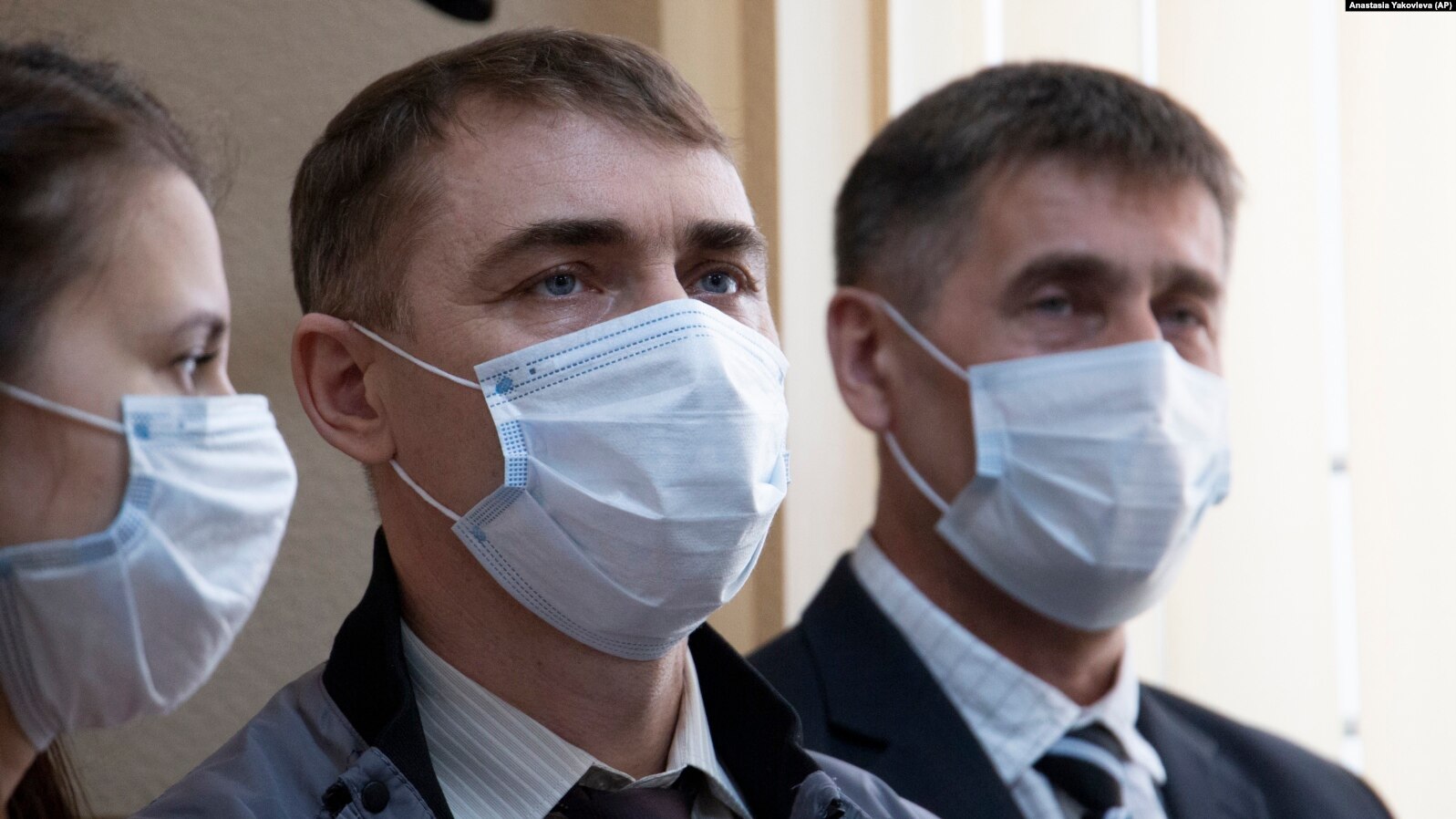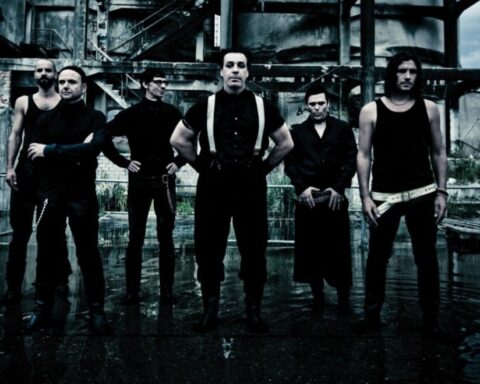The snooping, carried out by Russia’s Federal Security Service (FSB), was revealed at a trial in the Urals city of Perm, where five Jehovah’s Witnesses received suspended sentences for “illegal” religious activities.
The video of the group’s members in the bathhouse was used as evidence against the defendants in the trial, which has lasted for almost three years.
In evidence aired in court, 27 male and female members of the group met in a bathhouse in Perm to baptize new members. The FSB installed video cameras in the bathhouse where the baptism ceremony was taking place.
For Jehovah’s Witnesses, baptism is seen as a declaration of faith. Before the coronavirus pandemic, large public baptisms were common among believers worldwide.
For decades, the Jehovah’s Witnesses have been viewed with suspicion in Russia, where the dominant Orthodox Church is championed by Russian President Vladimir Putin.
Since the banning of the group in 2017, many of its members have faced persecution and have received prison sentences. An estimated 170,000 people are thought to be followers of the Jehovah’s Witnesses in Russia.
According to The Times of London, Igor Turik, who received a seven-year suspended sentence, said that: “If only you know what emotional pain these women suffered when they found out their nakedness had been recorded on video.”
Branded As ‘Extremists’
An integral part of Russian culture, the banya is a popular meeting places for friends and colleagues to drink, relax, and sometimes receive invigorating massages with leafy branches.

An article on JW.org, the official website of the Jehovah’s Witnesses, encourages its followers to enjoy “sweat baths,” writing of the health benefits in bringing “relief from allergies, colds, and arthritic pain.”
Four other members of the group received shorter suspended sentences, with Boris Burylov, Viktor Kuchkov, Aleksandr Inozemtsev, and Yury Vaag receiving 2 1/2 years each.
In addition to being convicted of “illegal” religious activities, the Perm Jehovah’s Witnesses were also charged with organizing, funding, and participating in the extremist community.
Speaking from the trial, group member Turik said, “I believe that this case is a delusion on the part of the state…. We are very hurt by what is happening in the country.”
The extremism law used to target the group was originally passed 19 years ago and has been subject to numerous amendments. In recent years, it has been turned against religious groups, most prominently the Jehovah’s Witnesses.
The same law has also been used against performance-art punk rockers Pussy Riot and the Falun Gong, the Chinese spiritual movement. More recently, Moscow prosecutors have asked a Russian court to recognize jailed Kremlin critic Aleksei Navalny’s regional network, along with his Anti-Corruption Foundation and his Citizens’ Rights Defense Foundation, as extremist organizations.
Known for their door-to-door preaching, keen Bible study, and rejection of military service, Jehovah’s Witnesses have about 8 million followers worldwide. The group’s adherents believe that the current world order faces imminent destruction and that only 144,000 people will go to heaven when Armageddon strikes.
According to independent monitoring group OVD-Info, criminal cases were opened against 423 Jehovah’s Witnesses in Russia by December 2020.
In February 2019, Jehovah’s Witnesses in Russia’s Khanty-Mansi region said at least seven members of their congregation were tortured by Investigative Committee officers in the city of Surgut, being subjected to “electric shocks, suffocation, and cruel beatings.”
While freedom of religion is officially guaranteed in Russia, foreign-based religious groups face suspicion and other groups, including Baptists, Mormons, and Pentecostalists, have faced persecution in the country
The United States has condemned Russia’s ongoing crackdown on Jehovah’s Witnesses and other peaceful religious minorities.
In September 2019, Washington banned two officers from Russia’s Investigative Committee from entering the United States over the alleged torture of Jehovah’s Witnesses in Surgut.






